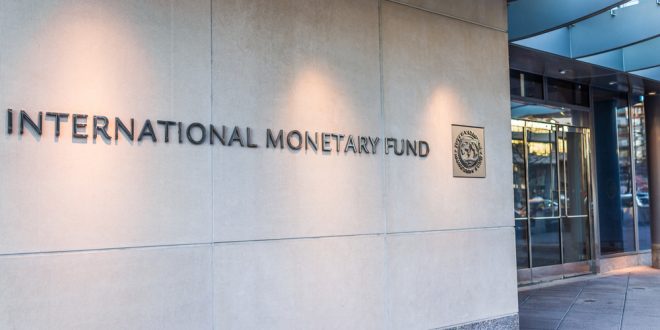China, the world’s second largest economy, should review its zero-tolerance approach to the pandemic or risk damaging the global recovery, according to the head of International Monetary Fund.
Kristalina Georgieva said Beijing should reassess the use of lockdowns to limit the spread of the highly contagious Omicron variant since it became clear the harm to human health was less severe than the Delta variant.
Speaking at the World Economic Forum on a virtual panel, Georgieva said that while the hardline approach had contained the pandemic in China for “quite some time”, the restrictions were now proving to be a burden on the economy in China and globally.
Millions of people in Henan province were ordered into lockdown earlier this month after China’s national health commission reported 87 new locally transmitted Covid-19 cases.
Other provinces have also been affected by shutdowns in recent weeks, while Hong Kong has banned passengers from 150 destinations from coming to the island.
Georgieva said the slowdown in economic growth in China was due to interruptions caused by Covid-19 lockdowns, which harmed consumer spending.
“China is still using a zero-Covid policy. But what Covid is teaching all of us is that a highly transmissible variant may be much more difficult to contain without a dramatic impact on the economy,” she said.
The IMF boss also chastised the Chinese authorities for withdrawing financial support to protect workers and businesses too early, saying that the economy continued to need subsidies from the government and for the central bank to keep interest rates low.
Earlier this week the People’s Bank of China cut the main mortgage rate. Many analysts in the City believe there could be more rate cuts to follow.
US Federal Reserve officials were praised for signaling an increase in interest rates in advance, allowing Americans and foreign businesses that have borrowed money in dollars to prepare for higher interest payments.
But Georgieva warned the US that a steep rise in interest rates would hurt many developing countries that were already highly indebted and struggling to cope with the pandemic, forcing them to seek help from the IMF.
The Fed is expected to increase interest rates next week in response to a surge in prices that pushed inflation to 7%. The IMF warning came as Catherine Mann, a member of the Bank of England’s rate-setting monetary policy committee, said inflationary pressures in the UK could remain “strong for longer” amid a worsening squeeze on living costs.
The independent economist on the nine-strong panel said there were few signs that high global shipping costs for business would fade soon amid continued pandemic disruption, while rising energy costs and higher wage settlements for workers could embed stronger levels of inflation.
“It should be a concern that the costs from 2021 are becoming reflected in price expectations for 2022,” she added.
In comments before Threadneedle Street’s next rate-setting meeting on 3 February, she said the Bank should “lean against” expectations for inflation to remain persistently high. Analysts expect the central bank to raise rates to 0.5%, after lifting its key interest rate from a record low of 0.1% to 0.25% in December.
In a statement that appeared to reveal her preference for the central bank to convey a need for higher rates without accelerating the pace of planned increases this year, she added: “The ingredients appear to be in place for inflation to stay strong for longer, but costs becoming embedded in prices to create a reinforcing dynamic is not inevitable.”

 Noor Trends News, Technical Analysis, Educational Tools and Recommendations
Noor Trends News, Technical Analysis, Educational Tools and Recommendations




